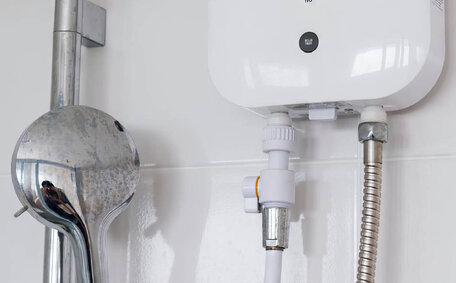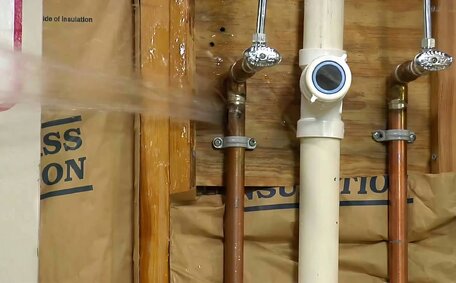Introduction to gas leaks and potential health impacts
A natural gas leak may emanate harmful chemicals such as carbon monoxide (CO), leading to reduced oxygen levels that often signal a leak. Unnoticed, prolonged exposure to carbon monoxide can critically reduce oxygen levels in the air, potentially causing neurological damage, organ failure, coma, or in severe scenarios, death.
Chronic low-level exposure may trigger diverse health issues, as documented in public health studies. Acute symptoms include dizziness, fatigue, nausea, and headaches. The individuals in your family facing the greatest vulnerability to health effects when they use gas include the elderly, expectant mothers, little ones, and cherished pets.
Minimising risks involves vigilance and promptly responding to signals from your gas leak detectors. Adopting gas safety measures can mitigate risks and aid in early detection of issues. Detecting a gas issue demands immediate departure from the vicinity; call gas technicians and solicit their qualified expertise for comprehensive analyses and restorative solutions.
Addressing gas leaks promptly is essential due to the inherent dangers gas leaks pose to public health and safety. It’s important to prioritise prevention through solid gas safety knowledge and maintenance, detailed on our website, are crucial when you suspect gas leak issues. Our guide provides an in-depth examination of identifying, addressing, and preventing hazardous disruptions from residential gas leaks.
Physical symptoms
Exposure to natural gas leaks can result in a variety of physical symptoms affecting multiple systems within the body:
- Respiratory symptoms: Coughing, shortness of breath, chest tightness, wheezing, throat irritation.
- Flu-like symptoms: Fatigue, headache, dizziness, nausea, vomiting.
- Cardiovascular effects: Heart palpitations, chest pain, elevated heart rate.
- Neurological effects: Confusion, impaired cognition, dizziness, visual disturbances, loss of consciousness.
- Skin irritation: Rashes, blisters, itchiness.
These symptoms can arise from exposure to air pollutants such as carbon monoxide, sulfur dioxide, and volatile organic compounds (VOCs) released by gas leaks. Symptoms of gas exposure tend to worsen with increased concentration and duration of exposure.
Children, the elderly, pregnant women, and individuals with pre-existing conditions like heart disease are especially susceptible to health effects from natural gas. Even healthy adults are at risk of adverse health outcomes from significant exposure to a compromised gas line. If worrisome symptoms arise, do not hesitate to call your doctor, especially if they improve when away from potential gas sources.
Respiratory symptoms: Coughing, shortness of breath, chest tightness, wheezing, throat irritation.Flu-like symptoms: Fatigue, headache, dizziness, nausea, vomiting.Cardiovascular effects: Heart palpitations, chest pain, elevated heart rate.Neurological effects:Psychological symptoms
In addition to physical effects, gas leaks can impact mental health, causing psychological symptoms that should not be ignored. These include:
- Anxiety: Gas leaks can trigger anxious thoughts or feelings of panic, especially over safety concerns related to explosions, fires, or carbon monoxide poisoning.
- Mood changes: Irritability, depression, and other mood shifts may occur with gas leak exposure and its physical effects.
- Cognitive impairment: Exposure can cause brain fog, confusion, difficulty concentrating, memory issues, and slowed reflexes or reactions.
- Fatigue: Mental fatigue and feelings of malaise frequently accompany gas leak symptoms.
- Sleep disturbances: Headaches, nausea, and respiratory troubles from gas stove encounters can gravely compromise sleep quality.
Psychological symptoms can arise from the chemical effects and stress associated with gas threats, emphasising the need for a safe environment and good indoor air quality. Do not dismiss changes in behaviour, mood, anxiety, or cognitive function – seek medical advice, particularly if several household members show symptoms.
In addition to physical effects, gas leaks can impact mental health, causing psychological symptoms that should not beconcerns related to explosions, fires, or carbon monoxide poisoning.
Mood changes: Irritability, depression, and other mood shifts may occur with gas leak exposure and its physical effects.Cognitive impairment:Dangers of carbon monoxide poisoning
Carbon monoxide (CO) poisoning arises from improper gas combustion and can be life-threatening if a gas leak goes unnoticed. CO is an odourless, colourless gas which is produced when natural gas or other fossil fuels undergo incomplete combustion. Given natural gas largely consists of methane, its correct combustion indoors typically does not produce dangerous levels of CO.
CO binds to haemoglobin in the bloodstream, leading to a dangerous condition that deprives the body’s organs of oxygen. Even small amounts of CO can have lasting effects, displacing oxygen in the bloodstream; this highlights the urgency for rapid gas detection and gas line repair to address potential carbon monoxide exposure. Long term exposure, Low doses of exposure can cause flu-like symptoms, while high concentrations can rapidly lead to serious health issues.
The perils of CO poisoning can be acute, including risks like CO exposure, which are more significant for vulnerable demographics including individuals with heart or respiratory conditions, infants, the unborn, and pets.
CO is difficult to detect, unlike symptoms of a gas leak which often present a rotten egg smell, as there is no odour, taste, or colour in CO. Therefore, installing audible CO alarms on every level of your home is pivotal for safety.
Treat any activation of CO alarms as an emergency, as it might indicate the presence of unburned natural gas and acute CO exposure.
Do not overlook symptoms like dizziness, nausea, or confusion, as they may signal a reaction in your body to a potential gas leak in your home. Promptly seek medical attention if you’re uncertain about the symptoms that might emerge from suspected gas exposure. Be aware that CO symptoms are often similar to the flu, so be vigilant during winter when your windows stay closed and gas appliances are in frequent use.
Regular servicing of gas appliances by professionals, installing CO detectors, and ensuring proper airflow are crucial to preventing CO contamination and its hazards. However, the only sure way to avoid exposure is prevention - Should you suspect gas hot water heater issues or other gas occurrences, immediate safety measures must be taken.
What to do if you suspect a gas leak
If a gas leak threatens your home, it is crucial to act quickly and safely. Here are the safety tips you should take if you suspect a gas leak your home:
- Evacuate immediately - Quickly escort everyone out of the property, leaving doors open to lessen the impact of a gas leak. Refrain from using electrical switches or appliances to avoid igniting the gas.
- Call emergency services - Alert firefighters and contact an emergency plumber or your gas companies’ emergency hotlines. Do not re-enter the building until officials say it is safe.
- Avoid attempting repairs - Gas lines should only be inspected and fixed by certified specialists who understand the critical balance of air and oxygen necessary for safety.
- Ventilate the area - Once outside, open windows and doors to allow gas to dissipate if possible.
- Shut off the gas - If it’s safe to do so, turn off the main gas valve near your meter to immediately halt the gas flow. This action is essential in the case of a leak your house to halt the flow of gas.
- Get medical help if required - We highly recommend that if anyone is experiencing symptoms like dizziness, fatigue, or breathing difficulties near gas appliances or sources, they seek immediate medical care.
- Do not re-enter until professionals deem it safe - Wait for the official all-clear before going back inside. The area may need ventilation, especially for homes with open flued gas heaters.
- After safety is confirmed, enlist a gas plumber to assess and ensure that the leak is comprehensively fixed and that the detection systems for natural gas flow are accurate.
Gas leaks pose extreme dangers, including the risk of a gas explosion, and require an urgent response when you suspect a leak in your home. Do not hesitate to evacuate your home and contact emergency services and gas professionals at the first sign gas leak is detected. With swift action, you can ensure your usage of natural gas safe and avert a dangerous scenario where a gas leak in your home leads to carbon monoxide poisoning, fires, explosions, and other severe risks in the United States and elsewhere.
The importance of professional assessment and repair
Attempting to assess or repair a suspected gas leak without professional training is perilous and should be left to gas plumbing experts. Only licensed gas fitters possess the necessary expertise, equipment, and training to correctly inspect, diagnose, and repair gas leak symptoms.
Gas leaks may arise from complex factors like defective appliances, damaged lines, improper installations, or wear and tear. Experts employ sophisticated leak detection technology to pinpoint leak sources in water heaters and appliances. Well-intentioned DIY repairs on appliances, like attempts at fixing your hot water heater, often fail to address the root cause or make the problem worse.
Equally important is ensuring any underlying issues get properly fixed and do not become ticking time bombs when using gas in your household.
A gas leak can be the result of faulty appliances or fittings that are not up to code and therefore need replacement to prevent potential off gas hazards.
We endorse our expert licensed gas technicians at Bexley Plumbing, who are extensively trained to service all devices, including sensitive gas heater models, while ensuring strict safety compliance. We are equipped with sophisticated tools to pinpoint leak locations, ensuring that issues from leaking gas to line repair are conducted precisely, with functional replacements or upgrades.
Post-repair, we perform detailed safety assessments to ensure all appliances operate at peak performance and no risk of air contamination lingers. Our reliable maintenance services and guarantees provide assurance when using natural gas resources in your residence. For gas leaks, delegating assessments and repairs to a licensed plumber is the definitive measure to safeguard your home and wellbeing.
Avoid risks with DIY repairs or unqualified handymen. Book a professional gas fitter from Bexley Plumbing for gas leak evaluations, repairs, and routine maintenance services.






